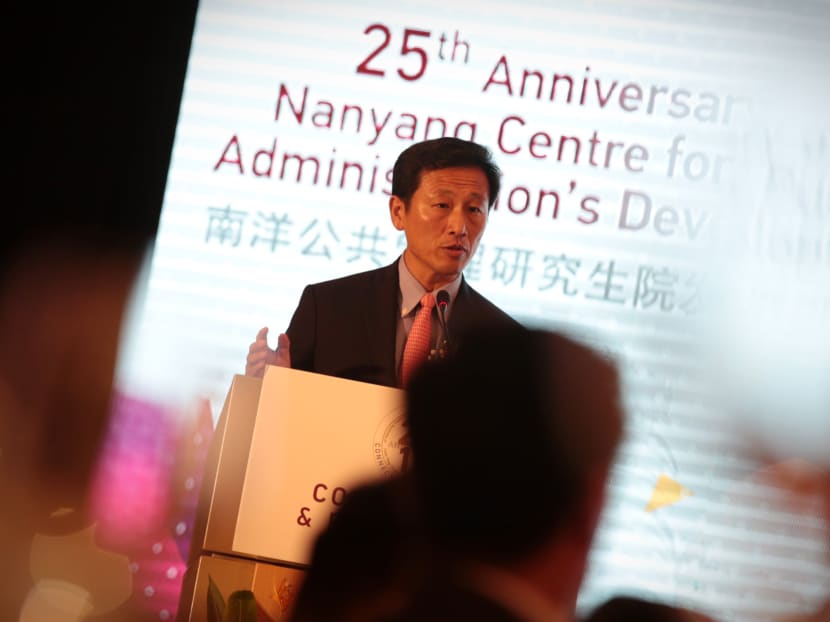Singapore ‘well-positioned’ as bellwether of global trends: Ong Ye Kung
SINGAPORE — As a small country with an open economy, Singapore is a “bellwether of emerging trends” and can offer other countries fresh perspectives on how to tackle problems, said Minister for Education (Higher Education and Skills) Ong Ye Kung.

Mr Ong Ye Kung said Singapore relies heavily on trade and connectivity, and the country’s survival depends on its ability to embrace the benefits and deal with the downsides of globalisation. Photo: Jason Quah/TODAY
SINGAPORE — As a small country with an open economy, Singapore is a “bellwether of emerging trends” and can offer other countries fresh perspectives on how to tackle problems, said Minister for Education (Higher Education and Skills) Ong Ye Kung.
Speaking at a dinner on Thursday (Oct 26) to commemorate 25 years since the Nanyang Technological University (NTU) started offering executive training programmes to officials from China, Mr Ong said Singapore relies heavily on trade and connectivity, and the country’s survival depends on its ability to embrace the benefits and deal with the downsides of globalisation.
“Because of that, we feel the impact of global trends earlier and more acutely than other countries,” he said.
The growing weariness of trade and foreign immigrants around the world today, for instance, are sentiments that Singapore was “sensitised to” almost a decade ago, said Mr Ong, who is also Singapore’s Second Minister for Defence.
Having to compete with foreigners for jobs at a time when the Republic was recovering from the global financial crisis had led to unease among Singaporeans, he said. “Being small allows the Government to respond more quickly too, and be more nimble in addressing the concerns of our people,” added Mr Ong.
He also cited the 2011 General Election — billed by many as a watershed election when the governing People’s Action Party saw its poorest showing post independence — as a catalyst for policy adjustments made to tighten the foreign workforce, accelerate development of new housing and transport infrastructure and strengthen social safety nets for the vulnerable.
Widening income inequality is another challenge that the Republic had to deal with earlier than many other countries, said Mr Ong.
In this regard, he lauded how the People’s Association and other volunteers helped give the Government a “good sense of the pulse on the ground”, enabling it to better assess individual hardship cases and review existing policies.
Citing a Chinese saying which goes “one autumn leaf can predict the coming of autumn”, Mr Ong said: “Singapore is that autumn leaf.”
After the successful training programmes for Chinese officials, the NTU established the Nanyang Centre for Public Administration (NCPA) in 2009 and extended it to administrators around the region.
Since then, the NCPA has trained more than 17,000 officials, leaders and professionals from China and seven countries in Southeast Asia, including Malaysia, Myanmar, Thailand, and Vietnam.
Sharing his recommendations on how the NCPA’s training programmes can keep up with the times, Mr Ong urged the centre to align its curriculum with the priorities and preoccupations of countries around the world.
He believes that modular and short-term programmes, as well as more extensive use of case studies, will also make training more practical for officials.
The centre should also boost collaboration between Singapore and China in other countries, especially in developing human capital, which will be relevant in developing and managing infrastructure projects from China’s Belt and Road initiative, said Mr Ong. He also called for a “concerted push” to nurture more officials with a good understanding of both Singapore and China.
Ukraine will be the latest country to have its officials undergo training at NCPA, after its embassy signs a memorandum of understanding with the centre next week.
A two-day conference on governance and public administration, which the NCPA is co-organising with the American Society for Public Administration and International Institute of Administrative Sciences, will commence on Friday.






